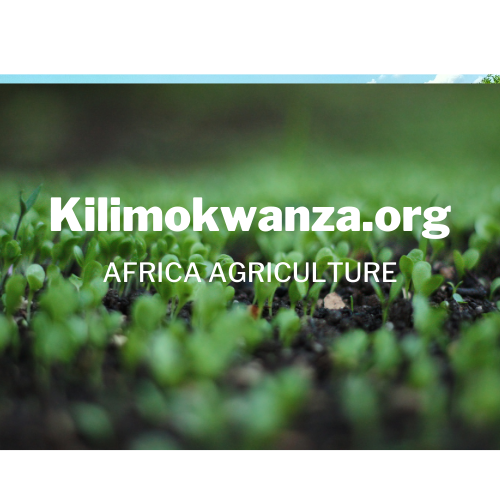Elizabeth Swai pioneers innovative youth-led chicken project to combat joblessness in Tanga
By Anthony Muchoki
Ms Elizabeth Swai is an exceptional woman, a visionary, and a trailblazer in the Tanzanian poultry industry. She has been quietly making waves by breeding Kuroiler chickens – turning them into the go-to choice for farmers seeking to profit through poultry farming. Her journey as a poultry entrepreneur began in 2006 as the founder of AKM Glitters Company Limited. Since then, she has earned numerous accolades, including the Malkia wa Nguvu 2019 award, offered by the Clouds Media Group in Tanzania, among other honours.
Ms Swai is a powerhouse of a woman who continuously pushes the boundaries of what’s possible in the Tanzanian poultry industry. She is an authorised Kuroiler breeder in Tanzania. Every year, her company breeds, on average, 3.4 million chicks, and she wants to double the number.
In 2021, she again demonstrated her unwavering commitment to excellence by joining the AGRA-led Centre for African Leaders in Agriculture (CALA). Through CALA, she says she has gained invaluable insights and clarity that will allow her to take her work to even greater heights, helping her to transform the lives of even more people.
Ms Swai was chosen from a competitive pool of 80 delegates from eight African nations in 2021: Kenya, Tanzania, Uganda, Rwanda, Ethiopia, Malawi, Ghana, and Nigeria. In 2022, they earned their CALA certificate. Four of Tanzania’s five representatives, including her, completed the journey.
While undergoing the CALA programme, she developed the idea of a brooders centre for youths in Tanga, as a different business model from the over 500 brooders across the country, that she supplies with a package of day-old chicks and tools, resources and extension services and training. She approached Tanga City Council and, with the help of the TangaYetu project enabled by Fondation Botnar, the five brooder houses were established, at Neema Area, along Pangani Road in the city. The city council provided the land, but initially, she had to take out a loan to build the brooders as the donors needed more convincing about the project’s viability.
The CALA program is about turning decisions into actions. The going was tough, as it was challenging to convince the youths that the chicken value chain was viable for self-employment. The youths kept dropping after training, but after more and more training, about 50 youths (19 female, 31 male )became passionate and are part of the project. Each brooder has slightly over 2000 chickens. They are ready for sale after 3 to 4 weeks.
Ms Swai provided leadership training to the 50 youths. As a result, they formed five small groups of 10 youths each, who elected their leader. Each group (10 youths) manages a brooder house. “Each group has its committee, and they make their own decisions but consult with us (AKM Glitters ) when necessary. Guidance is critical, and we provide training in mindset change, management, financial management, and group development. These skills are essential for young people to understand business and work together as business partners,” she says.
“I believe this result would not have been possible without my training as a CALA student. Through engagements like these, we instil a passion and drive to put more effort into transforming food systems, which is crucial for addressing gaps in nutrition. If we manage our food systems properly, our nutrition and environment can become sustainable. It’s all about how we manage our resources,” she notes. Ms. Swai’s dream is to open such centres in diverse locations in and out of Tanzania and translate the business model into a formidable international franchise.
At the time of the interview, held at the end of February 2023, she noted that over 10,000 chickens were generating profits. “Each youth here receives a monthly allowance of 70,000, and they still have profits to collect for about six months. This will enable them to sustain their business and grow even further.” The young people are accommodated and care for the chickens twenty-four hours a day.
Apart from the 50 youths running and managing the five brooders, Ms Swai’s team works with overstaying farmers who keep poultry in their households. The program had its share of challenges but is slowly gaining ground. According to the project marketing lead, Mr Abdulrzzck Jiwe, the first two months were challenging due to the traditional preferences of the local market, which initially did not embrace the Kuroiler breed.
To change this perception, the project leaders worked closely with the government livestock officers to acquire new clients in different locations in Tanga.
Looking to the future, he sees great potential for the project to break boundaries, especially if they can replicate it in other areas.
According to Ms Swai, poultry farming is more than just a nutrition and income generation solution at the household and investment levels. The project has marketers who make outreach to youth and women groups and encourage them to rear Kuroiler chickens.
As the founder of AKM Glitters, she has been making significant strides in proving the commercial viability of local chicken farming. This sector is proliferating and has enormous potential to benefit millions of youth nationwide.
“The poultry sector is not yet fully recognised, but we are in discussions with the government to determine its contribution to the national economy. Poultry farming is growing fast and has the potential to benefit the majority of the population, with around 75% of Tanzanians involved in poultry,” she notes.
Swai’s work has been noticed, with orders pouring in from countries such as Madagascar, Comoros, Malawi, Burundi, and Kenya. Her company’s relationship with AGRA has also been incredibly positive, with Swai benefiting from virtual training facilitated by AGRA and high-level visits at her poultry farms. She also has a good working relationship with FAO Madagascar, Agri-farm in Madagascar, and several other NGOs.
City director hails AKM Glitters in the youth poultry project.
According to Ms Hawa Msuya, the acting city director, the Tanga Yetu project’s partnership with AKM Glitters is a significant step in enabling youth to engage in farming and livestock keeping. “After six months of training, these youth will become trainers to other young people joining the program. AKM Glitters has taught them how to raise chickens from one day to one month old and, even after selling some chickens, how to keep the remaining chickens until they reach 4-5 months.
She is grateful for the leadership of Ms Swai and her team at AKM Glitters for enabling young people to learn chicken rearing. “They are teaching us how to rear chickens, from one-day-old chicks to one-month-old ones. After one month, some people take them home and rear them until they are four to five months old before selling them. If they have taken laying hens, they will start laying eggs, and they can sell them or hatch them to get more chicks,” she noted.
How the youths benefit
Ms Msuya explained that “the fifty young people rear chickens for six months. And at the end of each month, they sell over 10,000 chickens. After selling, they take the profits. “In this project, we have five chicken-rearing groups, each with ten young people.. Therefore, each group has about 2,000 chickens. They are in their third rearing stage, and these young people are being trained to participate in both farming and animal husbandry, as we mean both when we talk about animal husbandry.
“After completing this project, the City Council plans to provide loans to young people taught how to rear chickens. After six months, they will become mentors for other young people who will participate in similar projects,” she explained. “We expect that they will maintain the groups and transform them into cooperatives or saccos,” she noted.
The public official noted that many young people graduate from college and are left without jobs. “The government has seen one way to provide young people with self-employment is by grouping them with various training in agriculture, vegetable farming, or chicken farming. When we say agriculture, we mix livestock farming with crop farming. So the government has seen an easy and simple way to help young people by involving them in livestock farming and crop farming,” she says. She notes that the chicken pilot, led by AKM Glitters, has proved a success and should be continued and emulated. “This is a great project, and we welcome everyone in Tanzania and beyond to come and see how it works,” she says.
Youth voices: Agents of change
Twenty-six years old Ms Kulthumu Fadhili Yambi is the leader of one of the groups. She is grateful to the Tanga Yetu Project for selecting her and the other 49 youths to participate in the project led by AKM Glitters. To her, the project has been life-changing regarding personal development and business outlook.
“Through Madam Elizabeth, I have learned many things. Firstly, as a young girl, I have learned to be confident and to dedicate myself. The most important thing I have learned is that nothing is impossible with determination, courage, dedication, and wholeheartedness. If you set your mind to something, you can achieve it, but if you lack determination, you can fail.”
Ms Yambi says the pilot project is the beginning of a new thing in her life. “I want to become a successful businesswoman who employs herself and creates jobs for other young people like me. I want to lift them out of the unemployment mindset and work with them in business to make a profit and sustain ourselves financially.”
31-year-old Mr Vivian Faustine Mtejeta is the overall leader of the 50 youths. “All of us were jobless and often hopeless before we got into the project,” he says. He has learned a lot from Ms Swai, and his biggest concern is the sustainability of the groups. They are working with the Tanga Municipal Council to ensure that all group members get national IDs and become legally registered so that they can move to the next level. He says Ms Swai’s decision to allow all participants to buy chickens at discounted rates was a master stroke. “Most of us have some chickens at home, thanks to the project. It has not limited us from making more money, and we can showcase what we have at home, and more people believe in us,” he says.
The Tanga Municipality’s Youth Programme Officer, Mr Simon Mdende, thanked Ms Swai and her staff at AKM Glitters for their hands-on education in chicken raising. He says only 50 of the over 120,000 young people in Tanga City Council have benefited from this scheme. He stated his desire to see stakeholders reproduce the idea in outlying areas so that more young people might take advantage of it. He urged Ms Swai to continue her leadership efforts in using poultry farming to create employment opportunities for the youth.


